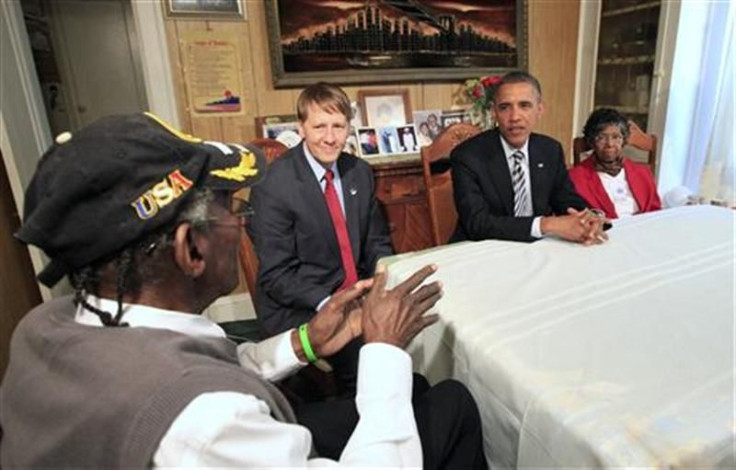Cordray Says Politics Won't Distract Him from Job

In his first full day as chief of the Consumer Financial Protection Bureau, Richard Cordray sought to lower the political heat around the agency, saying it would earnestly get to work targeting all the bad actors in the lending industry.
Cordray's remarks followed a day of bitter partisan sniping among Democrats and Republicans over President Barack Obama's controversial decision to install him as the CFPB's first director through a recess appointment.
At an event on Thursday hosted by the Brookings Institution, a Washington think tank, Cordray said those tensions and questions over the legality of his appointment are for others to worry about.
He is moving forward, full steam ahead. We are determined to deliver positive results for American consumers, he said.
Cordray said his agency would immediately begin regulating payday lenders, mortgage servicers, private student lenders and other businesses in the shadow banking industry.
We must establish clear standards of conduct so that all financial providers play by the rules, Cordray said.
Due to a quirk of the 2010 Dodd-Frank financial oversight law, which created the CFPB, the bureau could regulate banks but not other lenders until a director was in place.
Republicans had blocked Cordray's nomination, demanding structural changes to the agency, which they portray as a virtually unchecked government body that will hurt lending and put small banks out of business.
Democrats have heralded the bureau, which opened its doors in July 2011, as a way to protect consumers from abusive lending practices like those that occurred in the years leading up to the 2007-2009 financial crisis, such as pushing borrowers into loans they did not understand and could not afford.
Wall Street has been skeptical of Cordray himself. Cordray is a former Ohio attorney general who was not afraid to file legal challenges against banks, including Bank of America Corp.
On Thursday Cordray emphasized what the bank industry may see as a benefit -- the bureau can now crack down on its competitors in the shadow markets that until now were not subject to same federal scrutiny.
Richard Hunt, president of the Consumer Bankers Association, said banks welcome this focus and will closely watch what this will mean in practice.
That's going to be a tough task to regulate non-banks because there are over 70,000 of them, it's tough enough to regulate 7,000 banks, he said. We don't know if that's just a one-week spin or if that is going to be reality, that they are going to try to level the playing field.
As for the Republicans who blocked a vote last month on his nomination, Cordray said he takes them at their word that the issue was not him but their concerns with how the agency was structured.
I have never taken any of it personally, he said.
Cordray said he would reach out to members of both parties to solicit feedback.
This attempt at goodwill may be put to the test later this month if he accepts House Republicans' invitation to testify at a hearing on his appointment.
Cordray, whose appointment was cheered loudly by consumer groups and Democrats, said his agency would be aggressive when it spots lending abuses.
Cordray said the CFPB has already taken over some enforcement investigations from other agencies and has started some of its own, while declining to give specifics.
The consumer bureau will make clear that there are real consequences to breaking the law, Cordray said.
(Reporting By Dave Clarke with additional reporting by Alexandra Alper; Editing by Dave Zimmerman and Steve Orlofsky)
© Copyright Thomson Reuters 2024. All rights reserved.











